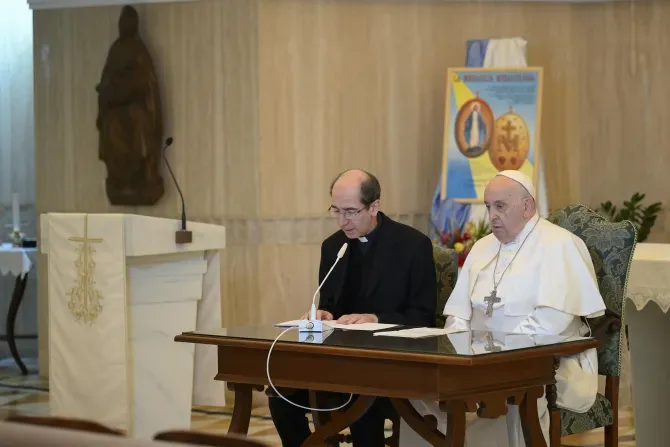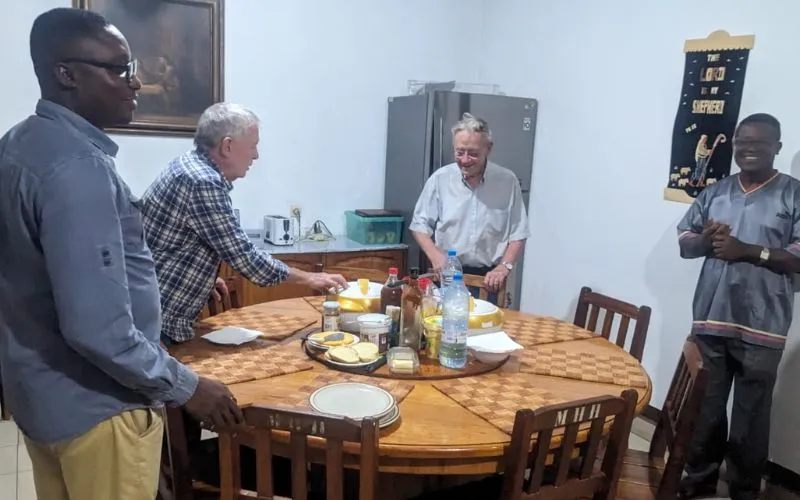The “final judgment,” Braida noted, “will be based on charity,” and it is charity that sits at the heart of the solemnity of Christ the King, which was instituted by Pope Pius XI in 1925 with his encyclical Quas Primas.
The address focused on those seated next to Jesus enthroned. It is by looking at them that we can outline the different criteria for those who are with a king, highlighting the difference between a spiritual and worldly logic.
For Jesus, “the blessed,” or the “friends” gathered around him, are not the rich and famous, not the people of a high court, as one would expect of a royal entourage, but rather “they are those who have served the weakest people. This is because the Son of Man is a completely different king, who calls the poor ‘brethren,’ who identifies with the hungry, the thirsty, the outsiders, the sick, the imprisoned.”
In this way Jesus introduces a radically different notion of kingship that does not correspond to worldly logic and associations. Instead, these individuals surrounding Jesus “are those who respond to these forms of poverty with love, with service: not by turning away, but by giving food and drink, clothing, sheltering, visiting; in a word, by being close to those in need.”
In this way, the court of Jesus “the King” who “calls himself the Son of Man” is composed of the community of believers who operate from “compassion, mercy, tenderness.”
During the address, Braida mentioned the 90th anniversary of the Holodomor, or the Great Ukrainian Famine, the manmade famine that starved millions of Ukrainian people under Soviet rule from 1932–1933.
“That lacerating wound, instead of healing, is made even more painful by the atrocities of the war that continues to make those dear people suffer. For all the peoples torn apart by conflicts, we continue to pray tirelessly, because prayer is the force of peace that breaks the spiral of hatred, breaks the cycle of revenge, and opens unexpected paths of reconciliation.”
Braida also noted that a short-term truce had been reached between Israel and Hamas in the war between the two, which saw some of the hostages freed.
“Let’s pray that everyone will be freed as soon as possible — let’s think of their families! — that more humanitarian aid enters Gaza and that we insist on dialogue: It is the only way, the only way to have peace. Those who don’t want to dialogue, don’t want peace.”
In a prisoner exchange, which was the result of a joint brokerage by Qatar and Egypt, 39 Palestinian prisoners were released by Israel and Hamas released 13 Israelis, the New York Times reported.








